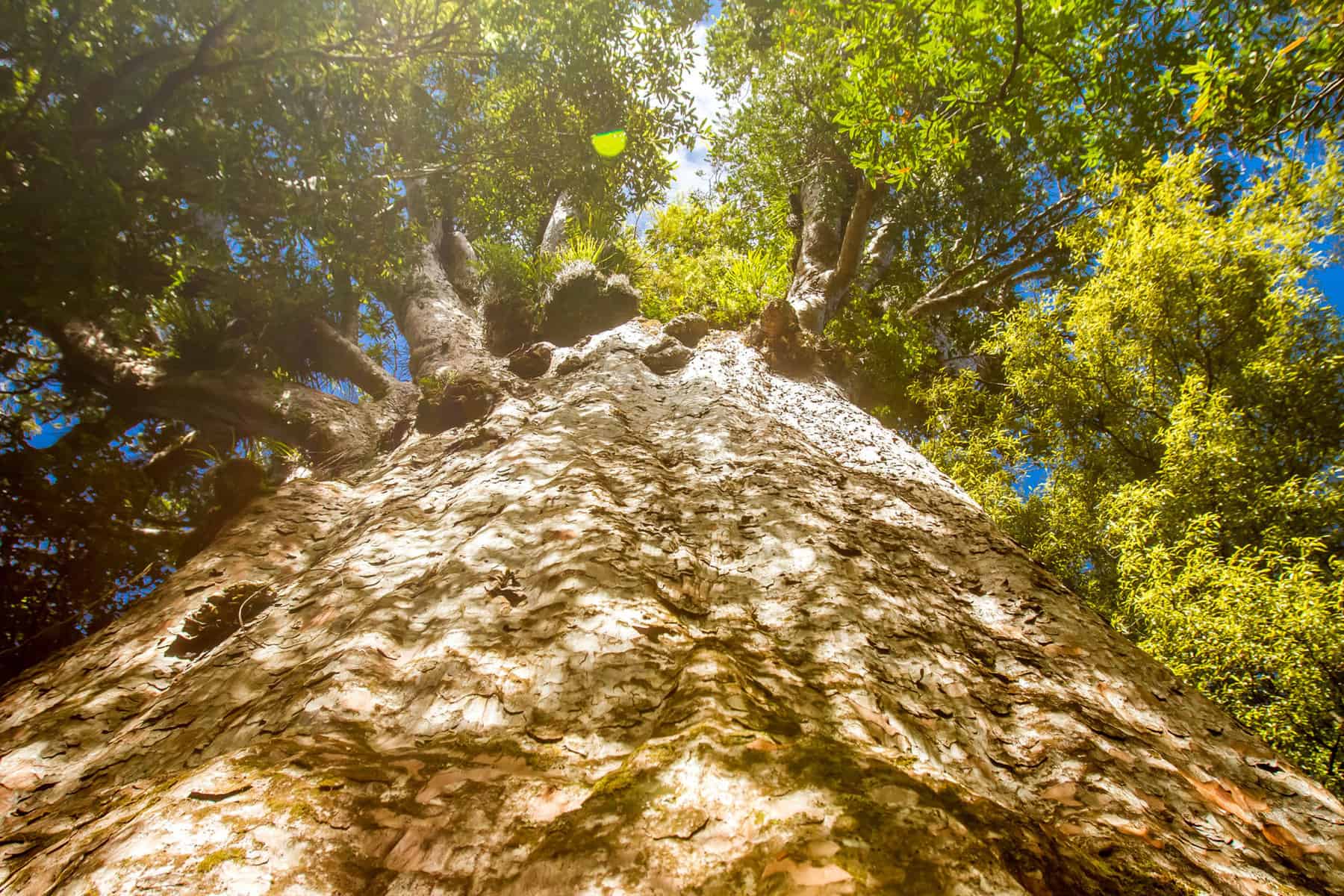Position 1: Will kauri survive? Resilience of ancient kauri populations to the modern world.
Kauri (Agathis australis) is a long-lived emergent tree species, and acts as a foundation species for a suite of northern forest ecosystems. It is taonga and faces several threats, including pathogens (Phytophthora agathidicida) and climate change. Understanding how these threats will affect kauri long-term requires understanding the species demography. We are looking for a PhD student interested in integrating repeated-measure plot-based data, dendroecological information, and state-of-the-art population models (e.g., integral projection approaches) to evaluate the resilience of kauri populations to demographic change under multiple stressors.
The successful candidate will have a strong background in plant ecology and be reasonably comfortable with quantitative analyses. Candidates should have a willingness and demonstrated ability to conduct fieldwork and have experience in modelling or an interest in developing such experience.
The PhD position is associated with the Ngā Rākau Taketake – Risk Assessment and Ecosystem Impacts theme of the Biological Heritage National Science Challenge. The project team includes researchers from multiple NZ Universities and Crown Research Institutes with a wide range of expertise.
We are offering a PhD stipend plus tuition fees. The funding will also cover all consumable costs and other expenses related to the research project. The successful candidate will be based at the University of Auckland. Domestic and international students are encouraged to apply and must meet the University of Auckland PhD programme entry requirements.
To apply, please send a cover letter stating your interests and experience relevant to the project, a CV, transcripts, and the names and contact information for three references to: Dr Bruce Burns () by 30 November 2020.
Position 2: Characterisation of the plant-soil interaction in Kauri ecosystem
This fully funded PhD research project will investigate soil physical, chemical and biological characteristics and deliver important baseline information required to better understand kauri ecosystems. You will combine advance DNA techniques (metagenomics, next generation sequencing) and biogeochemical techniques to describe microbial communities and how their diversity, functioning and interactions may be affected by kauri dieback disease. This opportunity is part of the Ngā Rākau Taketake – Risk Assessment and Ecosystem Impacts theme of the Biological Heritage National Science Challenge. The research team include multiple New Zealand Universities and Crown Research Institutes with multiple experts in different disciplines. Students who are interested in diverse aspects of how soil microbiology, ecology and microbial processes impact ecosystem health and functioning should apply.
We are offering a stipend plus tuition fees. The funding will also cover all consumable costs and other expenses related to the research project. The successful candidate will be based in the Auckland University of Technology (AUT) City Campus. The candidate will have demonstrated experience in research and have the willingness to conduct molecular laboratory experiments and field work. Domestic and international students are encouraged to apply and must meet the AUT PhD programme entry requirements.
To apply, please email Associate Professor Donnabella Lacap-Bugler (); Associate Professor Gavin Lear () and Associate Professor Hannah Buckley () with your cover letter stating your interest and experience relevant to the research project, a CV, and the names and contact details of three referees by 30 November 2020.
Position 3: Facing unfamiliar new biological threats: a risk assessment framework for Aotearoa.
The taonga plants of Aotearoa New Zealand are facing diverse new threats from invading and emerging pests and pathogens. Kaitiaki and other ecosystem guardians must assess and respond to unfamiliar new biological threats to plant health and ecosystem integrity. We are seeking a PhD student interested in working with mana whenua to develop a flexible and adaptable risk assessment framework to meet Māori, government and western science researchers’ needs. The framework should integrate elements of traditional and modern approaches to risk assessment to empower kaitiakitanga in the face of current and future biosecurity threats. The work should begin with a focus on kauri dieback and myrtle rust case studies, before broadening to encompass ecosystem vulnerability and exposure to diverse new hazards.
The successful candidate will have a background in plant ecology, sociology, tikanga Māori and/or another relevant subject. A willingness to be part of a larger research team is essential. The position is associated with New Zealand’s Biological Heritage National Science Challenge and two of its research programmes: Ngā Rākau Taketake – Risk Assessment and Ecosystem Impacts, and He Tangata, He Taiao, He Ōhanga – a values-based biosecurity risk assessment framework for Aotearoa. The project teams include researchers from multiple NZ Universities and Crown Research Institutes with a wide range of expertise.
We are offering a stipend plus tuition fees. The funding will also cover any consumable costs and other expenses related to the research project. The successful candidate will be based at the University of Auckland. Domestic and international students are encouraged to apply and must meet the University of Auckland PhD programme entry requirements.
To apply, please send a cover letter stating your interests and experience relevant to the project, a CV, transcripts, and the names and contact information for three references to: Luitgard Schwendenmann () by 30 November.
If you have questions related to the Ngā Rākau Taketake – Risk Assessment and Ecosystem Impacts research programme, please contact:
Simon Wegner () or Luitgard Schwendenmann ()
If you have questions related to the He Tangata, He Taiao, He Ōhanga – a values-based biosecurity risk assessment framework for Aotearoa research programme, please contact:
Christine Reed () or John Kean ()
Posted October 2020
